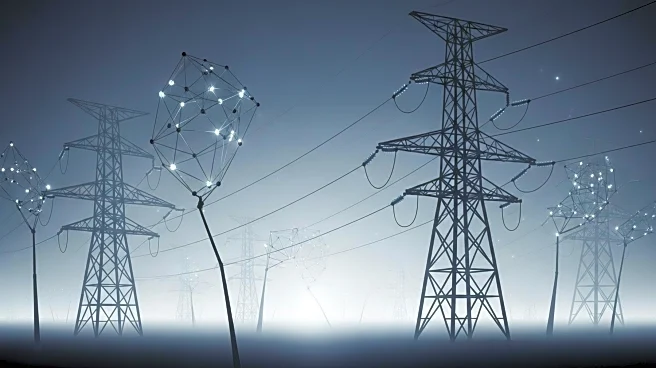What's Happening?
A bipartisan proposal in the House aims to modernize the National Environmental Policy Act (NEPA) with support from electric utilities. The Standardizing Permitting and Expediting Economic Development (SPEED) Act seeks to streamline permitting processes, reduce litigation, and simplify environmental reviews. This legislation is designed to address the challenges faced by both fossil fuel and renewable energy projects under NEPA. The bill, introduced by Rep. Jared Golden and Rep. Bruce Westerman, proposes to focus environmental reviews on direct impacts, establish reasonable timelines for agency decisions, and refine the definition of major federal actions. Electric utilities, including the Edison Electric Institute and the National Rural Electric Cooperative Association, back the proposal, emphasizing its potential to improve infrastructure and energy reliability. However, some experts, like Robert Glicksman from George Washington University Law School, caution against immediate changes, suggesting a need to evaluate recent NEPA amendments and judicial shifts before further revisions.
Why It's Important?
The proposed NEPA reform is significant for the U.S. energy sector, as it aims to remove bureaucratic hurdles that delay infrastructure projects. By streamlining permitting processes, the SPEED Act could accelerate the deployment of new energy generation and transmission capacity, crucial for meeting growing electricity demand and achieving energy dominance. Electric utilities stand to benefit from reduced litigation and faster project approvals, potentially lowering costs and enhancing service reliability. The reform could also impact renewable energy projects, which face high rates of NEPA litigation, thus supporting the transition to cleaner energy sources. However, the timing and approach of the reform are debated, with concerns about the implications of recent legislative and judicial changes.
What's Next?
If the SPEED Act gains traction in Congress, it could lead to significant changes in how energy projects are approved and developed in the U.S. Stakeholders, including electric utilities and environmental groups, will likely engage in discussions to shape the final legislation. The bill's progress will be closely watched by industry leaders and policymakers, as its outcomes could influence future energy infrastructure investments and regulatory practices. The debate over NEPA reform may also prompt broader discussions on balancing environmental protection with economic development.
Beyond the Headlines
The NEPA reform proposal highlights ongoing tensions between environmental regulations and economic growth. While streamlining processes may benefit energy infrastructure, it raises questions about the adequacy of environmental protections and public participation in decision-making. The reform could set precedents for future legislative efforts to address regulatory challenges in other sectors, potentially influencing how environmental laws are crafted and implemented.








